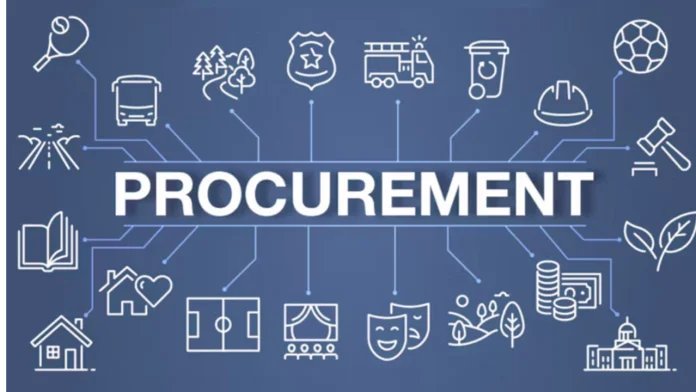Deputy Finance Minister Thomas Nyarko Ampem has unveiled comprehensive reforms targeting Ghana’s troubled public procurement system, which hemorrhages GH¢2.36 billion annually through breaches according to industry reports.
Speaking at the National Procurement and Supply Conference in Accra, Ampem positioned the overhaul as central to President John Dramani Mahama’s economic reset strategy, declaring procurement reform essential for restoring fiscal discipline and public confidence.
The troubling financial losses stem from systematic irregularities including unauthorized procurements, inadequate supervision, and compromised tendering processes that have plagued Ghana’s public sector for years. Research by the Institute for Management and Public Administration (IMANI-Ghana), African Centre for Energy Policy (ACEP), and Ghana Institute of Procurement and Supply (GIPS) documented how billions of cedis meant for hospitals, schools, and critical infrastructure have vanished through procurement misconduct.
“Procurement transcends mere transactions—it fundamentally shapes development outcomes, employment generation, climate resilience, fiscal accountability, and citizen trust,” Ampem emphasized during his keynote address to procurement professionals and policymakers.
The government has already implemented initial reforms requiring all central government-backed procurements to secure commencement certificates and confirmed budget allocations before proceeding. A specialized Public Financial Management (PFM) Compliance Division now operates within the Ghana Electronic Procurement System (GHANEPS) to enforce adherence and monitor compliance.
Cabinet is currently reviewing the long-delayed Procurement Practising Bill, legislation designed to professionalize the sector through mandatory licensing while embedding climate and sustainability requirements into procurement decisions. “This framework will elevate professional standards and establish procurement’s strategic significance in national development,” the Deputy Minister stated.
The reforms align closely with Mahama’s 24-Hour Economy Programme, which prioritizes local production over imports, promotes environmentally conscious procurement practices, and deliberately channels contracts toward domestic suppliers to stimulate job creation across Ghana’s economy.
Ampem challenged stakeholders to embrace technological solutions, rigorously enforce existing regulations, and pivot from cost-focused approaches toward comprehensive value creation. He stressed that every contract awarded to capable Ghanaian enterprises generates sustainable employment extending beyond individual projects while building competitive industries capable of regional expansion.
Historical procurement failures have created cascading problems throughout Ghana’s development agenda. Previous administrations struggled with contractor payment delays, inflated project costs, and quality deficiencies that undermined public infrastructure investments and eroded stakeholder confidence in government spending.
The timing proves critical as Ghana navigates economic challenges requiring maximum efficiency from every public cedi spent. International development partners have increasingly emphasized procurement transparency as essential for continued partnership and financial support.
Industry observers note the reforms represent the most comprehensive procurement overhaul in Ghana’s recent history, potentially setting regional standards for emerging economies grappling with similar governance challenges. Success could position Ghana as a model for effective public sector management across West Africa.
The conference, organized by GIPS under the theme “Transforming Public Procurement for Sustainable Development: Policies, Practices and Pathways,” brought together senior policymakers, procurement specialists, and international development partners to chart implementation strategies for the sweeping changes ahead.
Source: newsghana.com.gh











